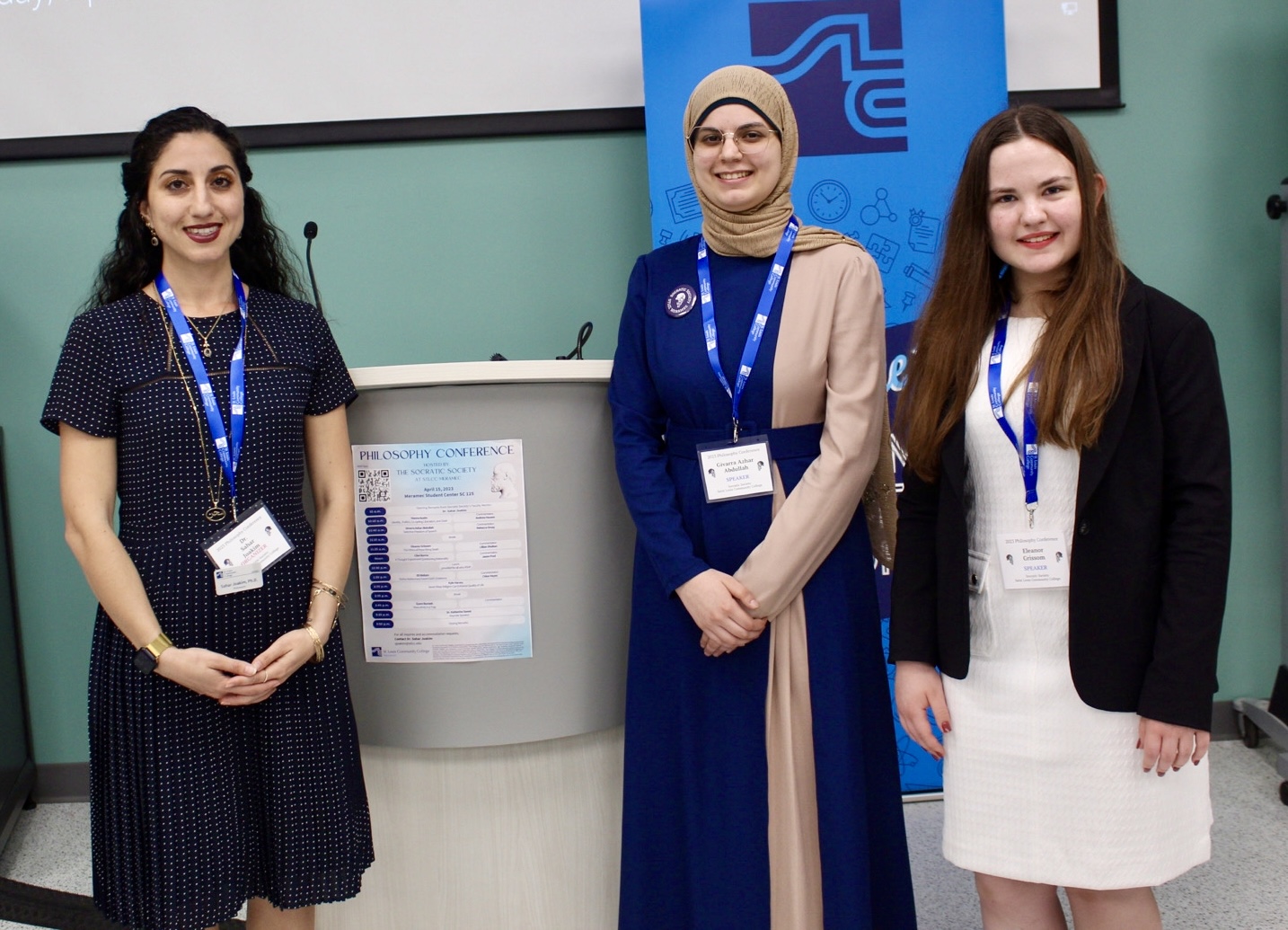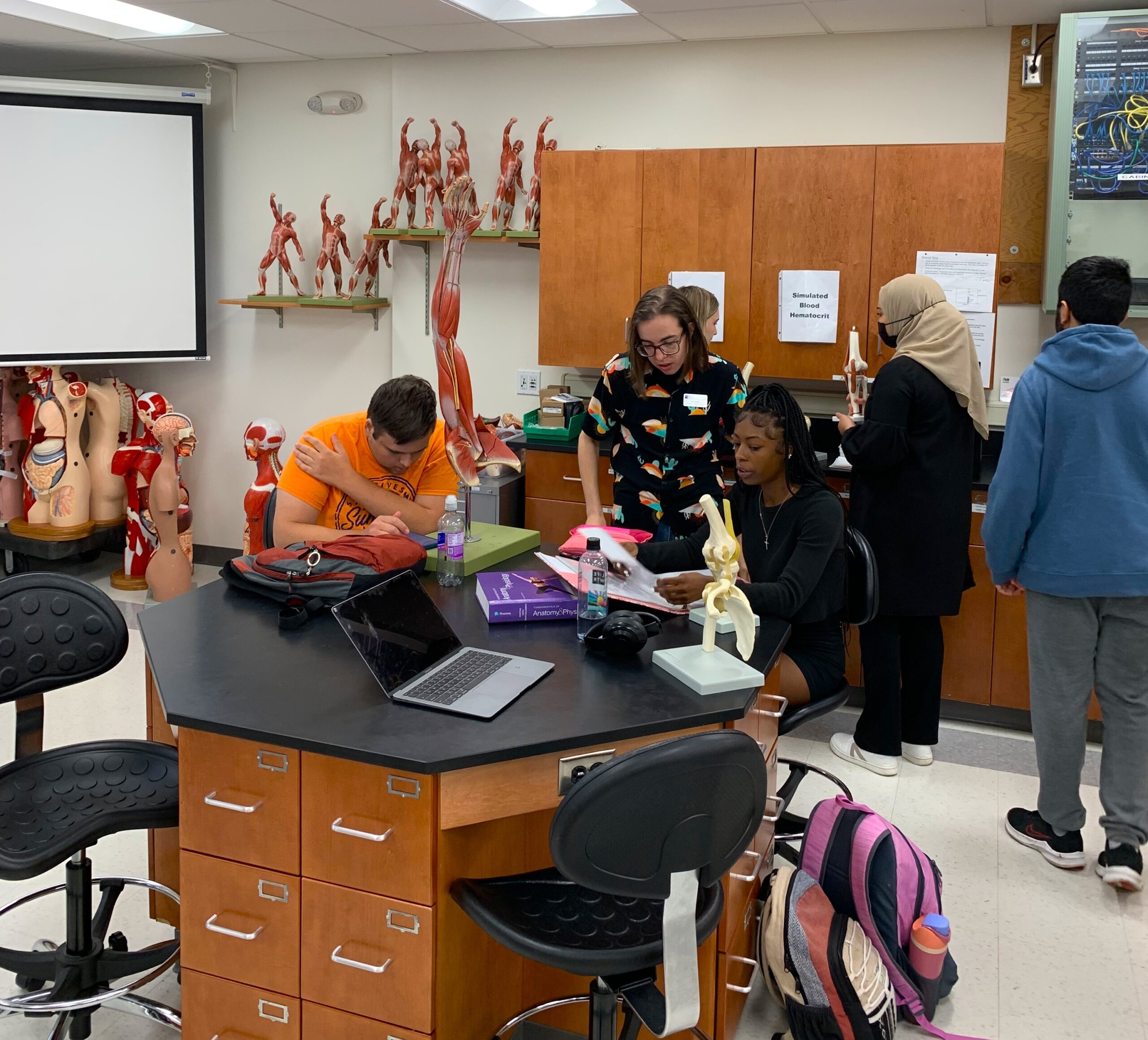A behind the scenes look at an extraordinary event.
BY: JACOB POLITTE
Managing Editor
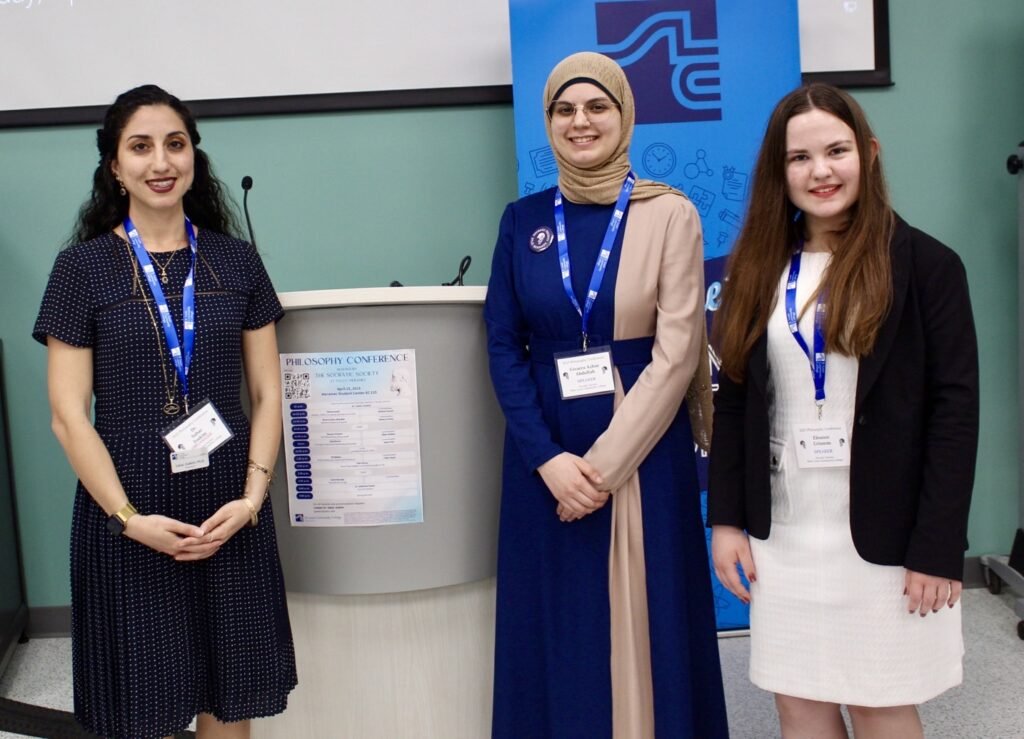
Editors Note: The print version of this article and an earlier online version misspelled Professor Joakim and Givarra Azhar Abdulllah’s first names. This has been corrected in the online version below. We apologize for these errors.
The Socratic Society at Meramec hosted its first ever philosophy conference on Saturday, April 15. 85 people attended (71 students, along with 1 administrator, 4 staff, and 9 faculty). Faculty Advisor and Assistant Professor of Philosophy Sahar Joakim says that she hopes it’s the first of many.
This is Joakim’s second year at STLCC. Previously, she taught at St. Louis University, SIUE and Jefferson College. She says that the conference could not have been made possible without the input of two key students.
“We had talked about doing a philosophy conference in my first year here, which was both my first year as a professor at this school and as faculty mentor of the Socratic Society” she said. “But there were about five people who showed up regularly and there wasn’t enough energy and dedication.”
This year was a different story.
“This year, with Eleanor [Grissom] as President,” Joakim said, “we created a system where there was about 12 to 13 students who came regularly. There was a lot of momentum. And Givarra [Azhar Abdullah] took on leadership roles backing up Eleanor. It’s this duo of students that made this idea from last year a possibility this year.”
Eleanor Grissom, President of the organization, is a second-year student at STLCC. She plans to study philosophy at UMSL during the next school year. Givarra Azhar Abdullah is in her third semester, planning to pursue a double major in both math and philosophy when the time comes for her to transfer to a different academic institution.
Joakim, Grissom and Abdullah all say that the idea and planning for the conference dates back to the beginning of the Fall 2022 semester.
“In our first meeting as a club,” Abdullah said, “Dr. J mentioned the idea. And after a while, we volunteered to help. And then we started planning.”
“I would say that planning started around November,” Grissom said.
“It took us six months to plan the entire thing,” Joakim said. “And actually, selecting that day was difficult because of all of the limited space. We were ready far in advance, but there wasn’t a room that was going to be constructed and ready for us. And then there was also the month of Ramadan and we were trying to avoid that. We were also trying to avoid midterms, and all of the other major events. That April 15 date was that sweet spot.”
During the conference, Grissom spoke about “the ethics of prescribing death,” while Abdullah spoke on the topic of selective freedom of speech.
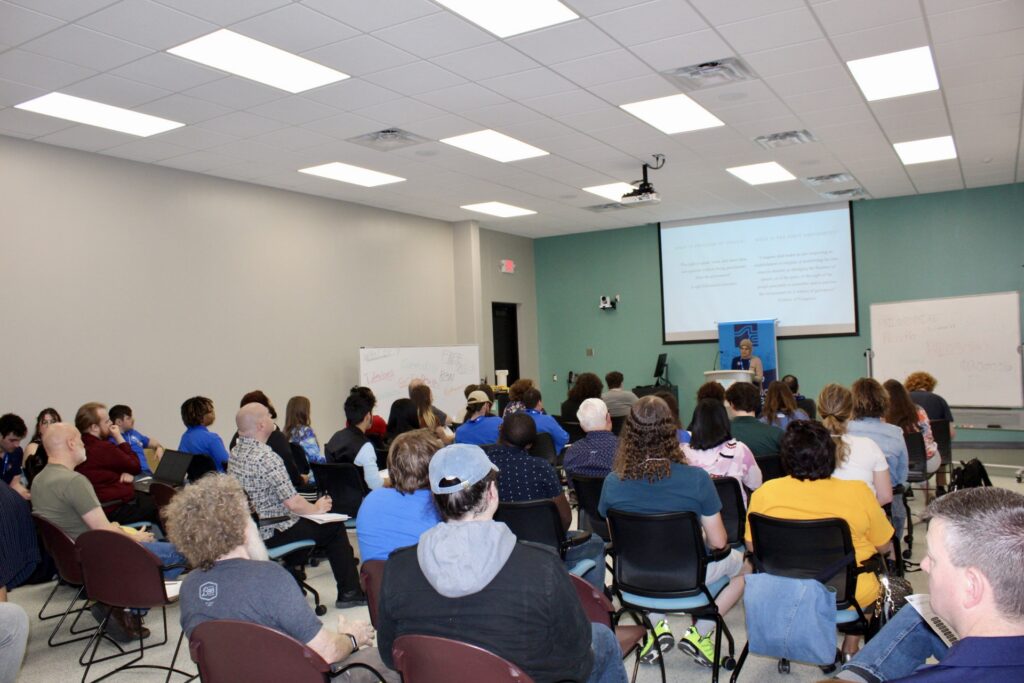
Speaking about her presentation, Abdullah said, “I made a claim. And I argued for this claim that not all Americans really have freedom of speech. My argument was presented through real life examples. I gave how some people may object to it, then I countered that argument by saying ‘The Constitution was written at a time where so many things had gone wrong. So that’s not a good back up for saying that everyone has freedom of speech.”
Grissom also spoke on her presentation.
“It was an applied ethics paper on euthanasia,” she said. “I looked at the issue of the voluntary act of euthanasia through three different normative theories or different standards in ethics: utilitarianism, deontology and virtue ethics. I claimed that all three ultimately proved that the voluntary act of euthanasia is ethical and that proves there is therefore solid ground for arguing that euthanasia is actually ethical.”
Abdullah and Grissom both said that preparing for their presentations while planning the event was a bit challenging, but preparing for the actual presentation wasn’t too nerve wracking.
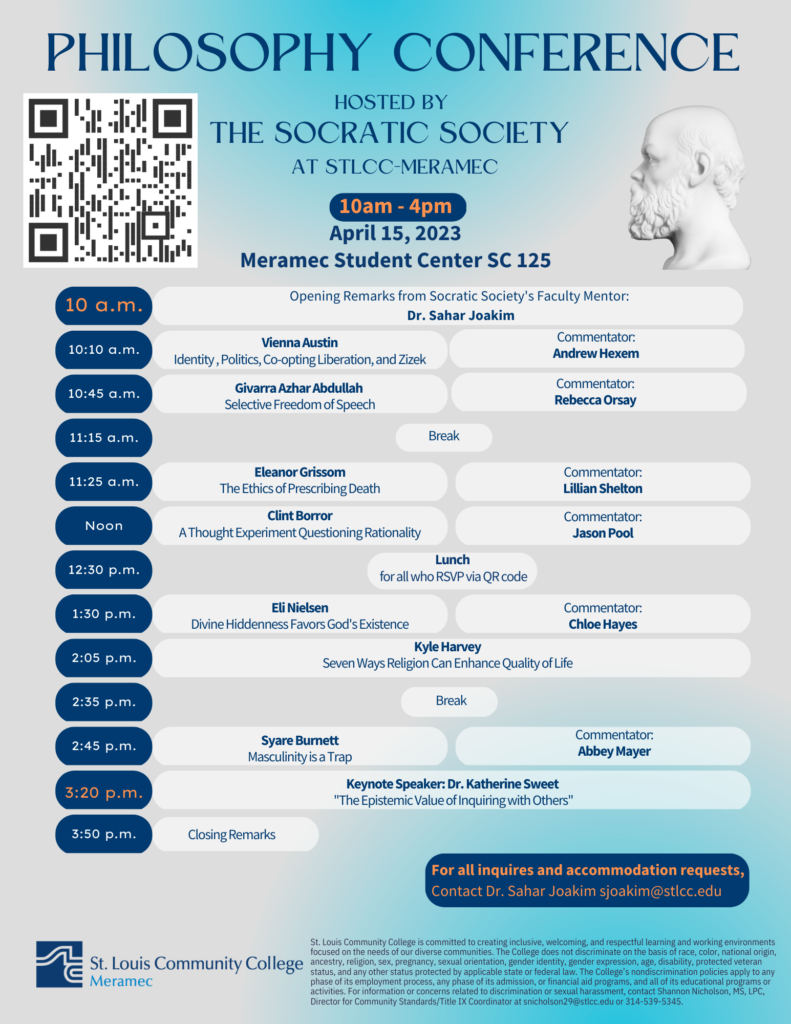
“I have a background of public speaking in general,” Abdullah said. “I’ve done many public speaking events. So it wasn’t too hard to prepare for. You always have to put in a little practice where you’re not reading off a paper, which was kind of difficult with all the planning in the background. But in general, if you know your topic and you know what you’re talking about and you’re passionate about it, the speaking part shouldn’t be too hard. It’s just making sure your thoughts are organized, having an outline, and maybe having notecards to help. That all goes into play.”
Grissom actually had given her presentation previously last month at a philosophy conference held at Webster University.
“I had actually given this talk at Webster’s philosophy conference about two weeks prior,” she said, “so I already had kind of a test run, which was nice. I’d say that practice though is really key, because obviously we adapted these presentations from papers. And figuring out how you want to say things, how you want to talk about things […] just talking through the presentation once a day for a couple of weeks before the actual conference was helpful for me.”
Each presentation had a “commentator” who provided feedback to the presentation. When explaining that role, Grissom said they were students in the club who were interested in philosophy.
“Once we had all of their papers and their presentations, we also knew that we wanted to get more students involved in the conference,” Grissom said. “So we sent everyone who was interested a paper, and they had a chance to read our papers ahead of time, and they could prepare a comment to respond to our presentations. And they delivered their comments at the conference right after our presentations to kick off the Q&A’s sessions.”
Joakim elaborated further. “We asked the commentators to read the paper in advance and to prepare a five-to-ten minute response where they first summarized the main points from the speaker’s presentation, and then generate some kind of comment where they express their views, or generate some kind of question to challenge the speaker to think further about it.”
While Abdullah and Grissom will be at their new schools next year, there are already hopes for another conference next year, and even potential collaborations with other Socratic Society’s at different institutions.
“We were thinking about a collaboration between Webster, UMSL, SLU, Washington University and STLCC,” Joakim said. “I think that would be interesting to have, say, two students from each school showcasing their work, but again, that depends on the students. It’s students first here.”
Joakim says that if future conferences are held, she would like to see more administrators and faculty attend.
“Keith Ware was the administrator who attended,” Joakim said, and she noted that his secretary Myrtle attended as well, in addition to other faculty and staff. “For the students to write an essay for fun, and then share it with other students and workshop it together […] the collaboration with the students, on their own, extracurricularly for no points or no money was extraordinary for me to be able to witness. And the offstage, background work that Eleanor and Giavarra conducted […] to get all of that together in a six hour, one day conference, and have people who are important at the school show up just to witness to glory, that’s all we can ask. More faculty, staff and administrators to just come and sit and eat the food and listen to the conversations? That would be ideal.”
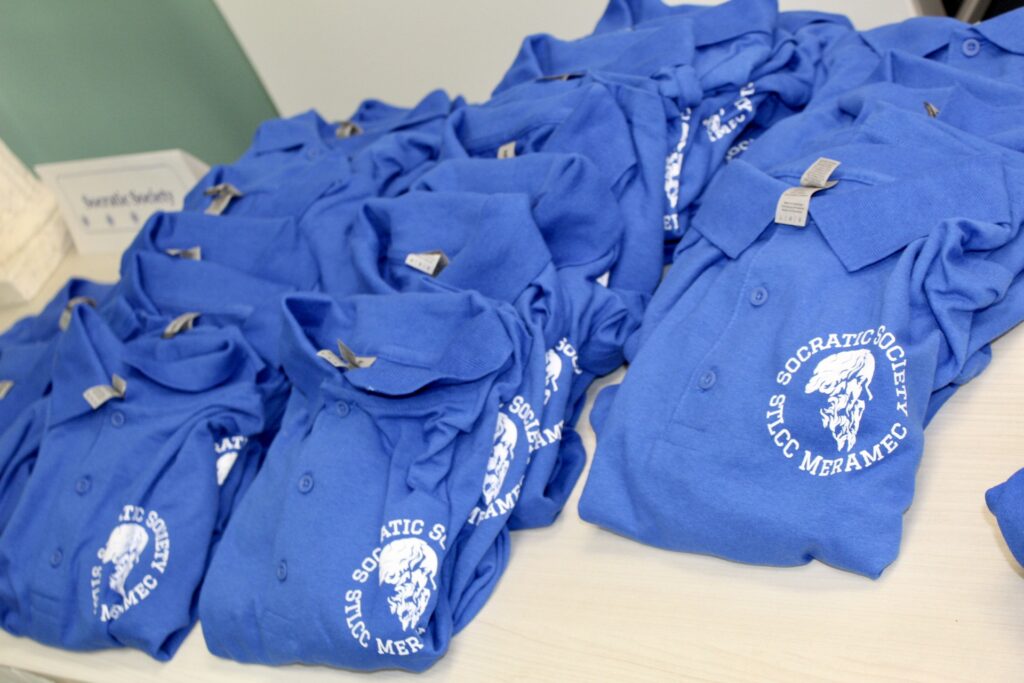
Grissom thanked Joakim and Abdullah for everything they did working alongside her, saying, “I’ll cherish this experience for a long time.”
Abdullah said, “The goal of the conference was to have students share their ideas, their thoughts, their presentations and their views with the STLCC community. And they did. We had a great amount of engagement and enthusiasm by the attendees of the conference. They made it all happen, if it wasn’t for the attendees, there wouldn’t have been a conference at all. The conference was a success.”








